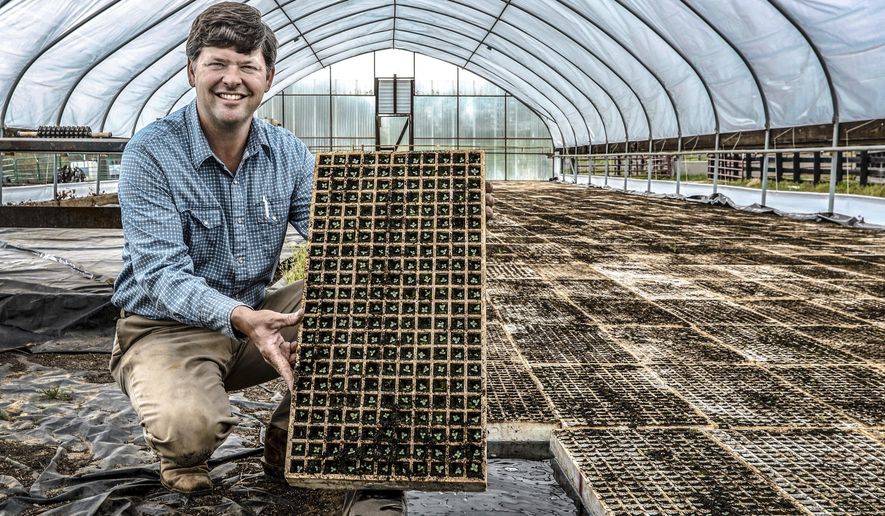OWENSBORO, Ky. (AP) - Inside Aaron Walker’s 30-foot wide by 96-foot long greenhouse, 500 trays filled with tobacco plants are steadily growing into what will eventually be transferred into a 14-acre field.
But that isn’t close to last year’s starter crop.
“I only seeded half of my greenhouse this year, which is not great because it costs the same amount of money to heat the greenhouse with half of it sown as it does with all of it being sown,” said Walker, a 39-year-old Knottsville farmer.
Walker seeded the greenhouse in mid-March, with the goal of having “settable” tobacco plants for the ground in six weeks.
Most of Walker’s crop will go to U.S. Tobacco in Hopkinsville. U.S. Tobacco owns moist smokeless tobacco brands such as Skoal and Copenhagen.
Walker, however, said U.S. Tobacco cut dark tobacco contracts by 48% for the 2020 growing season. The burley tobacco contract remained the same.
With the drop in dark tobacco, Walker reduced last year’s 20 acres to the 14 acres - 6 burley and 8 dark - for the upcoming growing season.
“Usage is down; so there are fewer people smoking,” said Walker, who had raised up to 32 acres of tobacco in the past. “For a time in the last five years, there had been a slight increase in people who used moist snuff tobacco.”
According to statista.com, Kentucky still ranks second nationally in tobacco production behind North Carolina.
However, the annual poundage keeps going down in all tobacco-producing states. For example, Kentucky’s three-year poundage rate starting in 2017 was 183,000 pounds. It then went to 134,370 pounds in 2018 and to 123,390 pounds in 2019.
Despite tobacco’s decreased demand, Walker, a first-generation farmer, credits the cash crop for giving him his start in 2006.
That’s when he decided to leave Kurtz Auction & Realty Co., where he was a real estate auctioneer, and took the leap into growing tobacco.
After the 2004 tobacco buyout that transitioned the crop from a limited production, federally-controlled process to a free market, Walker partnered with a friend in 2005 to raise tobacco.
The following year Walker became a full-time farmer at age 26.
“If not for tobacco, I don’t think that I would’ve been able to do what I’ve done in farming,” Walker said. “It’s something that requires a very small amount of equipment, a very small amount of acreage and a whole lot of hard work. And I was willing to put in the hard work. …That to me is what opened the doors for my farming operation.”
And during the past 14 years, Walker’s Knottsville farm has grown from tobacco and cattle to include 2,800 acres of corn and soybeans.
Walker said that diversification is what will sustain his farming operation into the future.
And although the demand for tobacco has waned in recent years, Walker said he’s not ready to give up..
“It’s going to be part of our farm as long as U.S. Smokeless will allow us to grow for them,” Walker said.




Please read our comment policy before commenting.